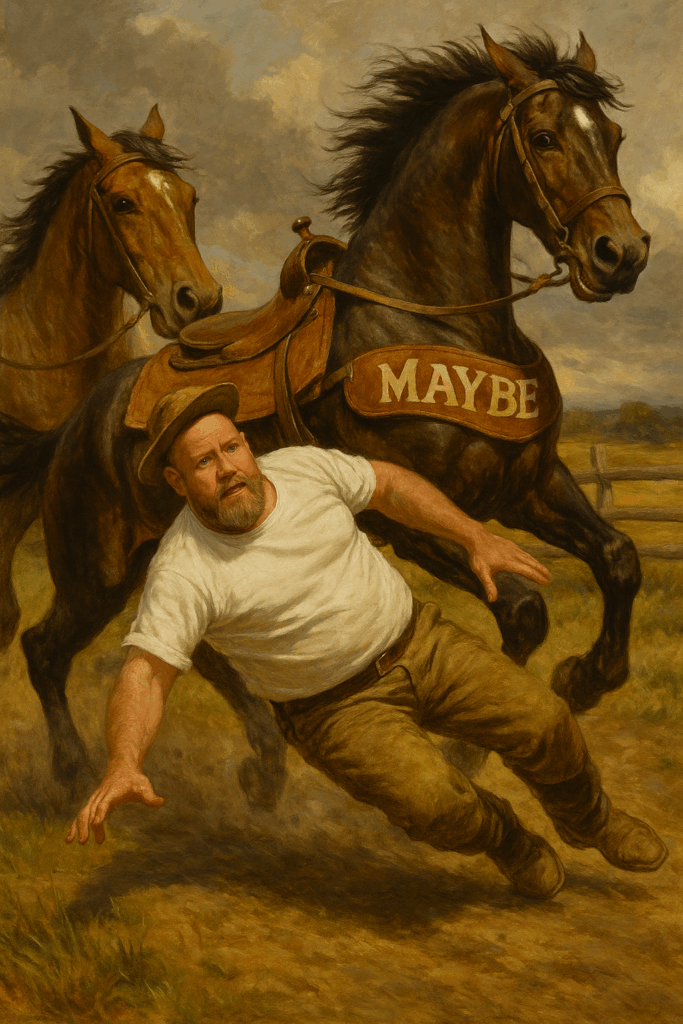She slammed her scooter into what I thought was my parked car—but the real hit was yet to be revealed. Yesterday’s chaos sounded like a harmless thud—noise without consequence. Today? A hidden camera revealed the real impact, and it wasn’t where I expected.
Ten minutes later—boom again. This time, a different kind. He bursts out the front door, skips past me, eyes locked on his own car. Something in his stride told me this wasn’t just about paint or panels—this was personal.
Turns out, my neighbor has an extra camera—not the usual doorbell cam, but a stealthier one perched on the middle floor. Better angle, better coverage. His car’s usually parked right next to mine, so when I stood outside with my son, trying to make sense of why I didn’t see any visible damage on my car despite the loud boom, I messaged him to ask if his cam caught anything.

“Mike! Come here. Now.”
I’m thinking: huh?
And then he drops it—“She hit my car first.”
Wait, what?
Suddenly, it all makes sense. He shows me the footage, and yeah, it’s clear: she was fiddling with her phone, not looking up, bam—straight into his bumper first, then mine. That explained a lot: the three thuds we heard, the mysterious absence of dents on my side. She probably scraped both cars, but most of the force was absorbed by his. I still need to check mine for underlying damage, just in case. But man… this girl’s lucky. Could’ve been worse. One more second of looking down at her phone and it could’ve ended in a very different kind of story—just goes to show how dangerous distracted driving really is.
Fallout, Family, and No Flashy Dirty Laundry
That’s the update on the crash. But this morning wasn’t just about dents and doorbells—it was about conflict, too. And family. And that fine line between openness and discretion.
I’ve been journailing publicly like this for a while now. Life-logging, you could call it. But there’s an old Dutch saying: je vuile was niet buiten hangen—don’t hang your dirty laundry outside. I believe in that. Just because I’m transparent in writing doesn’t mean I share what’s not mine to share.

Still, I want to talk a bit about something that happened with my sons—without naming names or diving into detail. Not to spill drama, but to reflect on methods. Parenting. Process.
Family conflicts are always trickier to write about than something like a scooter crash. They carry a weight of loyalty, love, and layers that don’t translate easily to an outside audience. Public incidents are shared by default. Family stuff—well, that’s earned.
One of my sons came to me and said something had happened, and he thought I should know. First off, respect. I told him I appreciated the honesty. But I also said: to be fair, I need to hear everyone involved. Not because I didn’t believe him, but because that’s how I operate—like a journalist or a mediator: multiple sources, multiple perspectives.
So I did. I heard from a witness—his other brother—and then I spoke to the other party the next day. Not to accuse. Just to understand.
Let’s just say: tensions ran high. These boys, they’re young men now—tall, strong, smart, passionate. One’s a soccer beast, the others gym and fight semi-professionally. Testosterone and principle—volatile mix. Words were said. Space was demanded. Boundaries tested.
My message to them: you’re allowed to be angry. You’re allowed to walk away. But you’re not allowed to cross certain lines—physical or emotional. You have the right to speak. But sometimes, the timing of your speech matters more than the words.
The Farmer’s Maybe Story

While journaling, I was reminded of a short story I’ve told many times—the Story of the Chinese Farmer. In short:
A farmer loses his horse. Villagers say, “How unlucky.” He shrugs: “Maybe.”
The horse returns—with another horse. “How lucky!” “Maybe.” His son breaks a leg trying to tame the new horse. “So unlucky!” “Maybe.”
War breaks out. The injured son is spared the draft. “Lucky!”
“Maybe.”
The point? We don’t always know what’s good or bad. One event triggers another, which triggers another. You don’t see the chain until later—sometimes never.
That’s how I approach conflict too. I told them: take a moment to step back. Let things breathe. Real time is rarely the right time. If you try to resolve everything in the moment, emotions lead—not reason.
They’re still sorting it out. But I trust them. And I’m here for all three.
The Story Beneath the Scratch
Before I wrap up—because it’s 8:45 and I’m off to my daily stand-up—let’s shift gears for a second. After a morning of family dynamics and life lessons, a small tech twist gave me a chuckle.
I was hyped to finally try Microsoft Viva’s AI Topics, only to find… it doesn’t load. Not on the web, not in the app. Ghost feature. I guess it’s being absorbed into Copilot or something. Maybe it’s just shy, or maybe it vanished into one of those mysterious Microsoft voids where beta features go to quietly retire. I’ll dig into it and report back.
For now, two reminders for the road:
- If you’re driving, look up. Phones can wait.
- If you’re in a conflict, pause. Talking can wait.
But if you’ve got a good story—like a scooter crash turned moral reflection—well, maybe don’t wait. Maybe share it. Maybe.
What's on your mind?